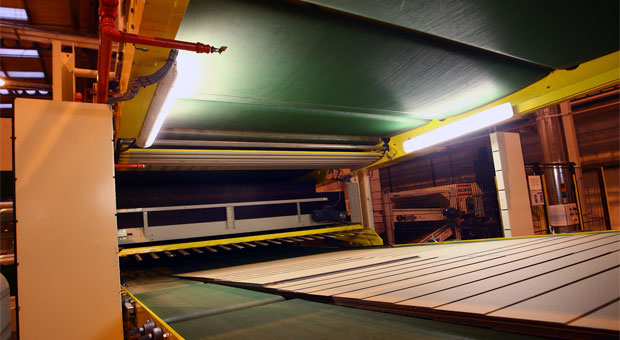
Demands for fresh produce and flowers change with the season, which is why the Confederation of Paper Industries (CPI) believes corrugated offers great quality, sustainable and stand-out packaging at the most cost-effective price which assists in this fast changing environment.
Corrugated packaging versatility and quick turnaround can help deliver a customer’s objective of optimum freshness from farm or nursery to high street – an advantage recognised by Pauleys, one of the UK’s leading specialist fresh produce companies.
Pauleys, part of the Brakes Group, has enhanced its packaging capabilities by installing cutting-edge box-making machines at its sites to significantly increase the number of boxes produced per hour. In addition, the equipment is able to create different styles and designs, including corners and flanges, to offer the best protection for the wide range of fruit and vegetables.
John Turney, Pauleys’ Operations Manager, said: “We pride ourselves on delivering a first-class service and corrugated packaging is playing a significant role in helping us to achieve that aim. The new machines have enabled us to take control of our on-site packaging which is crucial for us to respond to the requirements of our customers.”
Another bespoke solution helped a major high street supermarket cope with the additional volumes of spring flowers through seasonal horticulture peak trading times, like Easter. The retailer switched from returnable plastic crates used for transit packaging which require a washing regime, to recycled single-trip corrugated flower shippers as they proved more cost-effective.
CPI’s Director of Packaging Affairs, Andy Barnetson, said: “These are further examples of the Corrugated Industry working closely with its customers to find bespoke and sustainable packaging solutions to support their requirements. Pauleys improved efficiency and has greater flexibility over its packaging, which is vital for all food businesses.”
Supply chains continue to be scrutinised in an effort to drive down costs and meet environmental objectives. Reduced pack weights – average corrugated board decreased by 12% between 2005 and 2015 – and recycled materials are also becoming essential in helping producers respond to what retailers want.
Corrugated packaging can save fresh produce suppliers money by being manufactured to the optimum size suitable for transportation to shelf. Although the industry does work to standard footprints, the flexibility exists to introduce bespoke solutions quickly, efficiently and cost-effectively.
From speeding up delivery of fresh produce and supplying containers for flowers to insulated packaging for life-saving vaccines, corrugated companies are meeting customers’ commercial objectives under the most testing conditions.
The Corrugated Industry understands all aspects of the supply chain and works with retailers, category managers, growers, importers, agents and packers to ensure the best solutions for all companies, irrespective of size or location.